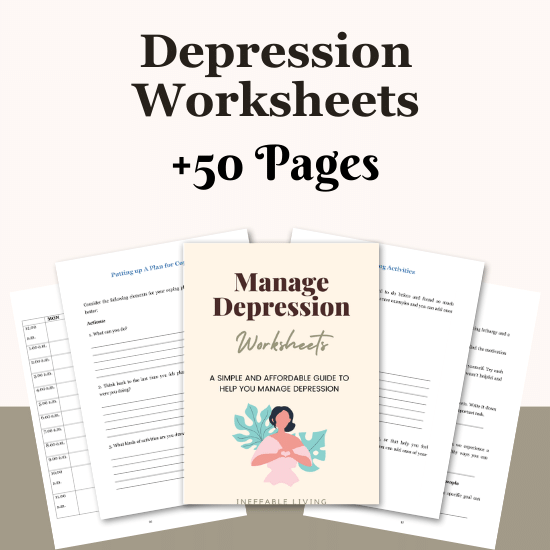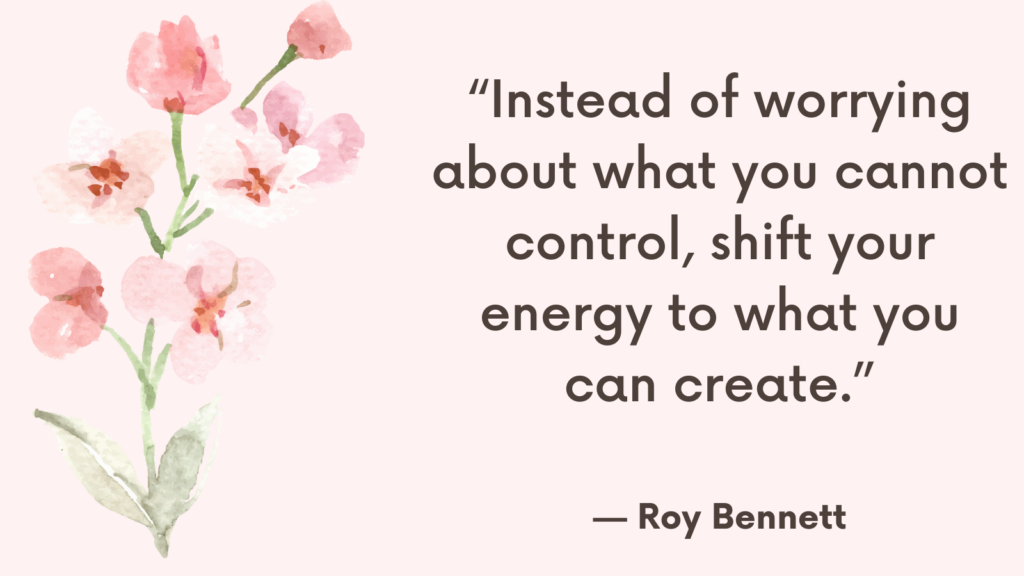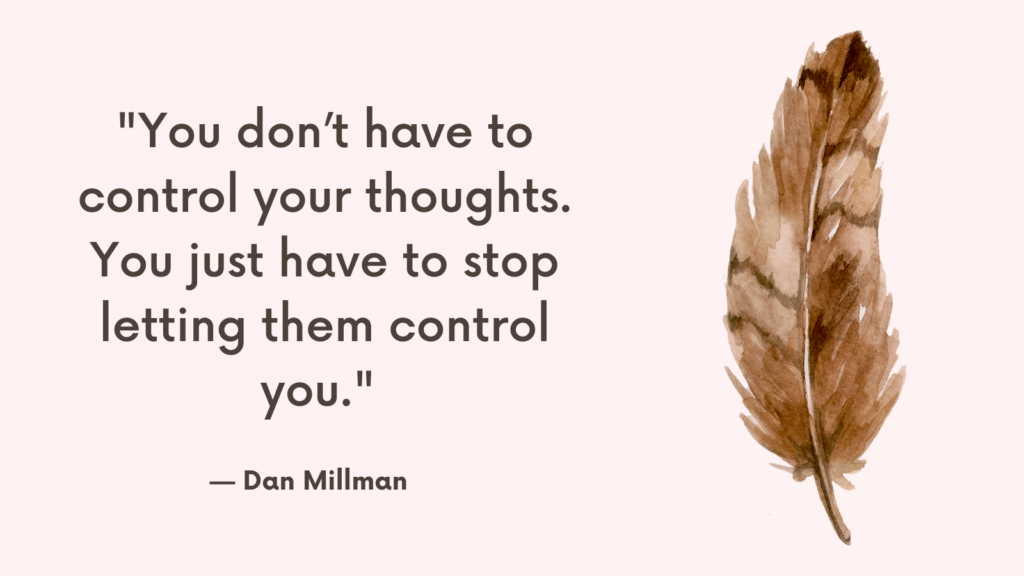Do you ever feel like your brain shuts down when you’re emotional?
Perhaps you make irrational decisions when you’re scared or angry, or you act impulsively when infatuated.
If so, you’re not alone.
Many people experience this because the rational part of our brain tends to shut down when it perceives a threat.
This instinctual response was helpful for our ancestors when they needed to run from predators or find food.
However, in modern times, our brains can enter survival mode in less life-threatening situations, such as getting feedback from a boss or speaking in front of a group.
When our emotions take over, we need ways to slow down and think clearly to make better choices.
Coping skills are techniques that help us move from our emotional brain back into our rational brain.
In this blog post, you’ll learn 30 coping skills that can help manage anxiety, depression, and intense emotions.
These strategies can help you calm down and regain control, allowing you to process emotions effectively.
Understanding the Emotional Brain
Our brains are wired to protect us.
When we perceive a threat, the emotional brain (limbic system) takes over, triggering the fight-flight-freeze response.
While this reaction can be helpful in genuine danger, it often backfires in everyday situations, causing us to react impulsively and irrationally.
The Importance of Coping Skills
Coping skills are essential for managing intense emotions and preventing irrational reactions.
They help us slow down, calm our minds and bodies, and think more clearly.
While coping skills are not a long-term solution, they provide temporary relief, allowing us to process emotions and make better decisions.
Related: Top 35 OCD Coping Skills
HALT: A Quick Check-In
When you’re overwhelmed, use the HALT acronym to check in with yourself:
– Hungry
– Angry
– Lonely
– Tired
If you identify with any of these states, take steps to address them. For example, eat if you’re hungry, reach out to a friend if you’re lonely, or rest if you’re tired.
Sensory Coping Skills
Sensory coping skills engage your senses and help soothe the emotional brain.
1. Step outside for fresh air:
– Go to a nearby park, garden, or just your backyard.
– Take a few deep breaths, focusing on the fresh air filling your lungs.
– Spend at least 10 minutes outside, observing nature.
2. Take a walk to change your environment:
– Choose a route you enjoy or explore a new path.
– Pay attention to your surroundings, noticing colors, sounds, and smells.
– Walk at a comfortable pace for at least 15-30 minutes.
3. Listen to music that calms or uplifts you:
– Create a playlist of your favorite calming or uplifting songs.
– Find a quiet place, sit comfortably, and put on your headphones.
– Close your eyes and focus on the music, allowing yourself to relax.
4. Feel a comforting texture, like a soft blanket:
– Find a soft, cozy blanket or piece of clothing.
– Wrap yourself in it, focusing on how it feels against your skin.
– Spend a few moments appreciating the comfort it provides.
Related: Best 99 Coping Skills (+FREE Coping Worksheets)
5. Smell an enjoyable scent, such as lavender:
– Use essential oils, scented candles, or fresh flowers.
– Take a few deep breaths, inhaling the scent deeply.
– Allow the pleasant aroma to soothe and calm your mind.
6. Get a massage to relax your muscles:
– Schedule a professional massage or ask a friend for a shoulder rub.
– Focus on the sensation of your muscles being worked on.
– Notice the tension melting away and your body relaxing.
7. Exercise to release endorphins:
– Choose an activity you enjoy, such as jogging, yoga, or dancing.
– Exercise for at least 30 minutes to get your heart rate up.
– Pay attention to how your body feels during and after the workout.
Related: How To Be Less Emotionally Reactive?
8. Take a hot shower or wash your face with cold water:
– If taking a shower, let the hot water run over your body, focusing on the warmth.
– If washing your face, splash cold water several times, feeling the refreshing sensation.
– Spend a few moments enjoying the contrast in temperatures.
9. Engage in a hobby, like knitting or building something:
– Gather your materials and find a comfortable workspace.
– Focus on the activity, paying attention to the details and textures.
– Enjoy the process of creating something with your hands.
Cognitive Coping Skills
Cognitive coping skills help process thoughts and emotions. Here are step-by-step strategies:
1. Write everything down in a brain dump:
– Grab a notebook or open a digital document.
– Write down everything on your mind, without worrying about grammar or structure.
– Spend 10-15 minutes allowing your thoughts to flow freely.
Related: Dysregulated Nervous System: Top 9 Signs & How to Heal
2. Journal about your feelings:
– Set aside a specific time each day for journaling.
– Write about your emotions, experiences, and thoughts in detail.
– Reflect on what you’ve written and identify any patterns or insights.
3. Meditate to quiet your mind:
– Find a quiet, comfortable place to sit or lie down.
– Set a timer for 10-20 minutes.
– Focus on your breath, gently bringing your mind back when it wanders.
4. Practice mindfulness to stay present:
– Choose an activity like eating, walking, or washing dishes.
– Pay full attention to the experience, noting the sights, sounds, smells, and sensations.
– Gently bring your mind back to the present whenever it drifts.
Related: Emotional Dysregulation Test [A Quick Test]
5. Pray or engage in spiritual practices:
– Find a quiet place where you can be alone with your thoughts.
– Spend time in prayer, reflection, or other spiritual practices meaningful to you.
– Allow yourself to connect deeply with your spirituality.
6. Color or engage in creative activities:
– Get a coloring book and colored pencils or any other creative materials.
– Spend time coloring or creating without any specific goal.
– Focus on the colors, shapes, and the act of creating.
7. Use guided imagery to visualize a calm place:
– Find a comfortable place to sit or lie down.
– Close your eyes and imagine a peaceful, safe place in vivid detail.
– Spend a few minutes exploring this place in your mind.
Related: The Big List of Emotions
8. Practice progressive muscle relaxation to ease tension:
– Find a quiet place to sit or lie down comfortably.
– Starting from your toes, tense each muscle group for a few seconds, then relax.
– Work your way up through your body, paying attention to the sensations.
Active Coping Skills
Active coping skills involve engaging in activities that distract and calm you. Here are step-by-step strategies:
1. Play an instrument or make music:
– Choose an instrument you enjoy playing.
– Spend 20-30 minutes playing music, focusing on the sounds and rhythms.
– Allow yourself to get lost in the music and enjoy the creative process.
2. Watch a funny clip on YouTube:
– Search for a short, funny video or a clip from your favorite comedian.
– Find a comfortable place to sit and watch the clip.
– Allow yourself to laugh and enjoy the moment.
Related: Top 21 Emotional Writing Prompts To Process Emotions
3. Watch TV (use sparingly to avoid overuse):
– Select a light-hearted or engaging show that you enjoy.
– Set a time limit for how long you will watch (e.g., one episode).
– Focus on the storyline and characters, allowing yourself to relax.
4. Read a book to escape into a different world:
– Choose a book that interests you or one you’ve been wanting to read.
– Find a quiet, comfortable place to read.
– Spend at least 30 minutes immersing yourself in the story.
5. Do a crossword or puzzle:
– Choose a crossword puzzle, Sudoku, or jigsaw puzzle.
– Set up a comfortable workspace and start solving the puzzle.
– Focus on the challenge and enjoy the mental engagement.
6. Spend time in nature or plant seeds:
– Go to a park, garden, or any natural setting.
– Spend time observing and appreciating the natural environment.
– If planting seeds, prepare the soil and plant them, enjoying the process.
Related: Best 35 Journal Prompts for Releasing Difficult Emotions
7. Give yourself a facial or engage in self-care:
– Gather your facial products and set up a relaxing space.
– Follow your facial routine, paying attention to each step.
– Enjoy the pampering and take time to relax.
8. Express emotions through art or music:
– Gather art supplies or your musical instrument.
– Spend time creating art or music that reflects your emotions.
– Allow yourself to express freely without judgment.
Connection Coping Skills
Connection coping skills involve reaching out to others for support. Here are step-by-step strategies:
1. Hug someone to feel connected:
– Find a friend or family member who is comfortable with physical affection.
– Give them a hug, holding for at least 20 seconds.
– Focus on the warmth and connection you feel.
2. Pet an animal to feel calm:
– Find a pet or visit a place where you can interact with animals.
– Spend time petting, playing, or simply sitting with the animal.
– Notice how the interaction helps you relax and feel grounded.
Related: The Difference Between Pain And Suffering (+Top 4 Tips On How To Embrace Pain & Stop Suffering)
3. Talk it out with a friend:
– Reach out to a trusted friend and ask if they can talk.
– Share your thoughts and feelings openly.
– Listen to their perspective and support, and enjoy the conversation.
4. Write a letter to someone:
– Choose someone you care about and write them a letter.
– Express your thoughts, feelings, and any messages you want to share.
– Mail the letter or keep it as a personal expression.
5. Draft an email to express your thoughts before talking:
– Open your email and start drafting a message to someone you trust.
– Write down your thoughts and feelings as if you were talking to them.
– Review the email and decide whether to send it or use it to prepare for a conversation.
Healthy vs. Unhealthy Coping Skills
It’s crucial to distinguish between healthy and unhealthy coping skills.
Healthy coping skills make you feel better in the long run and help you address the root of your emotions.
Unhealthy coping skills, like excessive TV watching, emotional eating, or substance use, can lead to dependency and avoid solving the problem.
Creating a Coping Plan
Develop a coping plan by identifying three activities that help you calm down.
Choose activities that work in different settings, such as home, work, or school.
Additionally, write down three people you can contact in case of a mental health crisis.
Related: Survive vs Thrive

Conclusion
Coping skills are essential tools for managing anxiety, depression, and intense emotions.
By practicing these skills, you can calm your mind and body, making it easier to process emotions and make better decisions.
Remember, coping skills are a temporary solution.
Use them to regain control, then address the root of your emotions through therapy or other long-term strategies.



